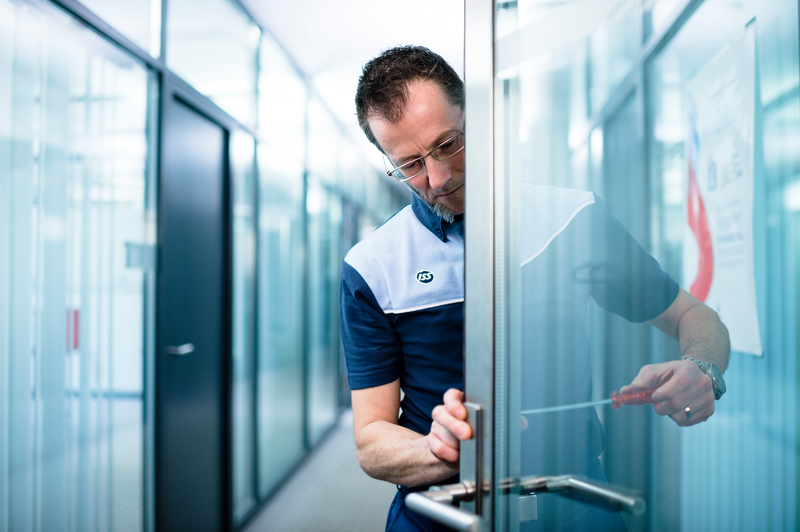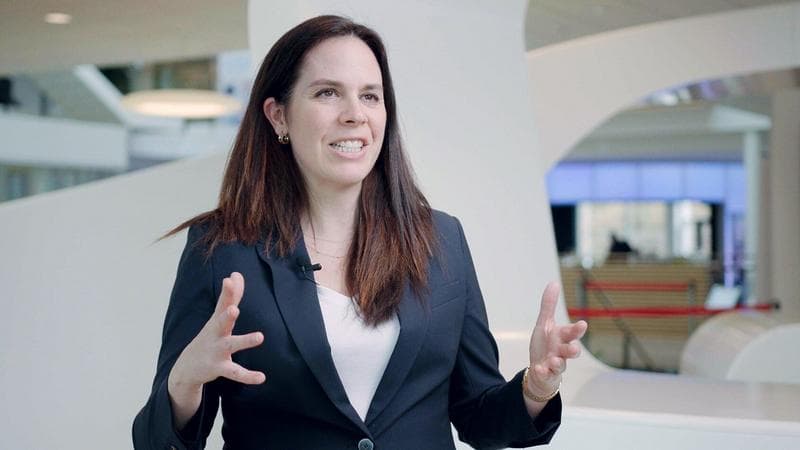Keeping facilities running
In Spain, our local Technical Services team supported pharma customer Grifols with location-specific maintenance plans, enabling offices to close down while keeping production running. Grifols develops blood plasma, and products to help fight Covid-19, so continuing that work was vital. We supported them by resetting HVAC installations, increasing fresh air and increasing health protocols.
It’s also important for ventilation systems to operate safely, ensuring that they can support any additional load. For one of our healthcare customers, our Technical Services teams came on board to help a hospital convert an intensive treatment area (ITU), theatre recovery and reception areas from positive pressure to negative pressure in accordance with official guidance. We installed window extract fans in wards to increase airflow for Covid patients and monitored oxygen levels to help support critical activities.
In the commercial sector, we’ve supported banks – including TSB, RBS and Danske Bank – meet regulatory requirements by keeping their doors open for customers. And we’ve developed customised maintenance plans for corporate HQs, data centres and manufacturing plants to enable them to operate safely.
Closing down
When it comes to decommissioning, our tasks have been many and various. Ranging from isolating and draining swimming pools and major infrastructure – such as refrigeration, AC and electrical equipment – to front-of-house activities such as lighting, refreshment areas and ventilation.
In some cases, we had to keep certain areas operational while closing others. For example, we devised a plan for the Barcelona Museum of Contemporary Art that allowed the museum to shut down safely, while making sure the environmental conditions needed to preserve the art collections were met during closure.
Opening up again
Returning to normal isn’t as simple as switching on the lights. Every location needs careful preparation to ensure people’s safety.
“To help recommission buildings, our technical teams have been responsible for planning a phased return to safe operations,” Martin explains. “This has involved reducing physical contact by installing touchless washroom facilities; reviewing meeting spaces and breakout areas; rethinking shared areas like restaurants or canteens; and introducing screening where needed.”
Securing safe work environments for the future
As lockdowns are gradually lifted around the world, we’re helping people return to their facilities in safe and controlled ways by combining standard procedures with that we’ve learned during the pandemic.
We will assess customers’ needs to understand the services they’ll be running, and identify the changes needed in terms of cleaning, maintenance and technologies. Many new working patterns are inefficient, so we’re drawing on what we’ve learned from across sectors and applying innovate approaches to mitigate these issues such as using automation and the Internet of Things (IoT) to minimise physical contact.
But it doesn’t stop at buildings. Martin concludes: “We’re looking at how we can improve our customers’ experience in other ways as they navigate the new normal. This includes hygiene, behavioural change, spatial redesign, and even strategies for how people get to and from work, or work remotely.”
In this way, our experts in Technical Services will continue to design new technologies, equipment and services that can help ensure a safe work environment for our customers.


